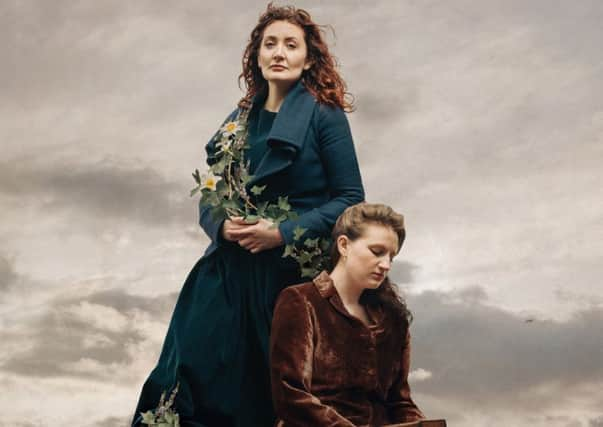New play will portray meeting between Robert Burns’ wife and his mistress


Now a play about a fictional meeting, following the poet’s death, between Jean Armour, Burns’ wife and Nancy Maclehose, the Edinburgh society hostess who became his paramour and captured his heart, lets their voices be heard.
Armour: A Herstory Of The Scottish Bard by the female-led theatre company Fearless Players has won praise from Burns experts for making people think “beyond going to the annual Burns Supper” and will be performed in Edinburgh and Dumfries to celebrate Burns Day on 25 January.
Advertisement
Hide AdAdvertisement
Hide AdDirector Lydia Davidson, who plays the role of Nancy, whose nom d’amour was ‘Clarinda’ while Burns used the name ‘Sylvander’ in their letters to one another, said a number of male audience members, who had assumed it would be a “man-hating” work, had come up to her in tears afterwards.
“They said they were crying because they’d seen the other side of that really intense love of two women,” Davidson said.
Shonagh Murray, who wrote the play, which is narrated by Armour’s grand-daughter, said that both women wanted to save Burns’ memory but ultimately Nancy wanted to ask Armour a favour.
“In the play the two women come upon each other at a supper party. Nancy who is in with the ‘in-crowd’ knows the poet’s widow will be there and that people are eavesdropping watching to see her reaction.
“On the spur of the moment she goes up to Jean and asks her to meet for tea so they can have a proper conversation.
“Nancy has an ulterior motive – she wants to get back from Jean the love letters she wrote to Burns. She was a married woman and any speculation about her and Burns would harm her reputation.
“Jean has a curiosity about Nancy. She was the only other woman who Rabbie was emotionally captivated with.
“So, there is a whole bundle of emotions there – bitterness, resignation and reluctant respect on both sides.”
Advertisement
Hide AdAdvertisement
Hide AdArmour (1765-1834), was aware of Burns’ philandering nature with other women and once said he should have had “twa wives”.
Maclehose (1758-1841), an accomplished poet herself, was estranged from her husband due to his mental cruelty when she met Burns in 1787 during one of his visits to Edinburgh. In 1791 Burns wrote his most famous love song, Ae Fond Kiss, after their final meeting and sent it to her as she was about to depart for Jamaica to reunite with her husband.
Chris Waddell, learning manager at the Robert Burns Birthplace Museum in Alloway, Ayr, run by the National Trust for Scotland, said: “I really think this is a play for our time. Such complicated entanglements are timeless, part of the human condition, and are still going on today, even when those who are caught up in them have more options, such as leaving. That’s not a ‘get out clause’ for Burns, but a way of saying that each generation will see Burns in a different way. In a post-Weinstein world his sexual behaviour will be under examination in a different way, perhaps in how he used his fame and power over women.
“This is thinking beyond going to a Burns Supper and keeps him a vibrant force.”
Armour: A Herstory Of The Scottish Bard – 23 January, Gilded Balloon Basement at The Rose Theatre, Edinburgh, and 25 January, The Swallow Theatre, Dumfries